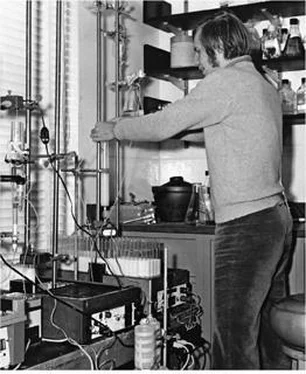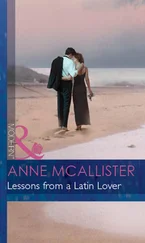James Watson - AVOID BORING PEOPLE - Lessons from a Life in Science
Здесь есть возможность читать онлайн «James Watson - AVOID BORING PEOPLE - Lessons from a Life in Science» весь текст электронной книги совершенно бесплатно (целиком полную версию без сокращений). В некоторых случаях можно слушать аудио, скачать через торрент в формате fb2 и присутствует краткое содержание. Жанр: Биографии и Мемуары. Описание произведения, (предисловие) а так же отзывы посетителей доступны на портале библиотеки ЛибКат.
- Название:AVOID BORING PEOPLE: Lessons from a Life in Science
- Автор:
- Жанр:
- Год:неизвестен
- ISBN:нет данных
- Рейтинг книги:5 / 5. Голосов: 1
-
Избранное:Добавить в избранное
- Отзывы:
-
Ваша оценка:
- 100
- 1
- 2
- 3
- 4
- 5
AVOID BORING PEOPLE: Lessons from a Life in Science: краткое содержание, описание и аннотация
Предлагаем к чтению аннотацию, описание, краткое содержание или предисловие (зависит от того, что написал сам автор книги «AVOID BORING PEOPLE: Lessons from a Life in Science»). Если вы не нашли необходимую информацию о книге — напишите в комментариях, мы постараемся отыскать её.
AVOID BORING PEOPLE: Lessons from a Life in Science — читать онлайн бесплатно полную книгу (весь текст) целиком
Ниже представлен текст книги, разбитый по страницам. Система сохранения места последней прочитанной страницы, позволяет с удобством читать онлайн бесплатно книгу «AVOID BORING PEOPLE: Lessons from a Life in Science», без необходимости каждый раз заново искать на чём Вы остановились. Поставьте закладку, и сможете в любой момент перейти на страницу, на которой закончили чтение.
Интервал:
Закладка:
Liz's last two months at Radcliffe took a direction we never expected. Less than a week after our return, University Hall was occupied by some three hundred students protesting the war. Many were members of the radical group Students for a Democratic Society (SDS). The afternoon of Wednesday, April 9, red and black banners hung from a second-floor window after the building's occupants, largely administrators, including Franklin Ford, were roughed up by the students protesting their earlier unlawful expulsion. SDS had been threatening violence for some time, no doubt encouraged by the effects of similar student uprisings elsewhere. Intending their actions to stop a war, those occupying University Hall saw no reason for their conduct to be governed by codes observed in times of peace.
That afternoon they proclaimed their occupation would end only if the university acceded to several demands, chief among them the expulsion of ROTC from Harvard. In fact, the Faculty of Arts and Sciences two months before had voted to deny credit for ROTC courses and not to give academic appointments to the military officers teaching them. ROTC's presence, commonly supposed to be the root of the trouble, by itself never would have led to the occupation of University Hall. The unstoppable chain reaction began when Richard Nixon became president and Harvard lent him Henry Kissinger as national security advisor. The student protesters had reached the limit of their patience with Nathan Pusey, who had failed to address the moral quandary in which the university found itself, and who two years earlier had branded the campus's self-proclaimed student revolutionaries as “Walter Mittys of the left.”
Despite repeated warnings to leave University Hall and Franklin Ford's closing off Harvard Yard to all except its freshmen inhabitants, the SDS-led students gave no sign of budging. Though a lightning police raid had been talked about earlier as the best way to deal with building takeovers, no one was prepared for what happened next. At five o'clock the following morning, four hundred blue-helmeted, shield-carrying Cambridge policemen entered Harvard Yard and with tear gas and clubs forcibly removed the students, then barely awake,
many banded together arm in arm. After less than fifteen minutes of this mayhem, University Hall was cleared. Most of the students were herded into paddy wagons and carted off to the Cambridge city jail to be charged with trespassing.The rest of the Harvard student body, until then largely unsympathetic to the SDS gang, instantly ignited with indignation against the administration and, in particular, President Pusey Police brutality had made martyrs of the student protestors. Fifteen hundred students gathered that afternoon in Memorial Hall calling for a three-day boycott of classes. Even angrier crowds formed later in Soldiers Field across the Charles River. More than five hundred law students, from a school never before known for radicalism, voted for Pusey to resign. As I walked that day into the Faculty Club for lunch, Liz was among the students lining the path to its front entrance to protest the raid. I had never before seen her make a display of political opinions.
Though the police raid's impact upon students lasted only until commencement, schisms developed within the faculty that would last for years. A liberal caucus was formed soon after the event. The group believed that without Nathan Pusey as president, the whole ugly affair would not have happened. By reacting so insensitively to student concerns about Vietnam, he stood out as a naked proponent first of Lyndon Johnson's Vietnam policy and later of Richard Nixon's. In contrast, a conservative caucus of roughly the same size assigned all blame to the student activists. How the offending students would be disciplined was not initially clear. Just before commencement, the liberal caucus felt semivictorious when a broadly constituted committee, including several students, voted for the temporary expulsion of only ten students, those known to have manhandled administrators during the April 9 takeover. Those in the conservative caucus had wanted many more students held accountable and for the sanction to be severe, ideally permanent expulsion.
Exacerbating the spring tensions was an emerging political activism among many of Harvard's black students. Two months before, the Faculty of Arts and Sciences had voted to set up an undergraduate degree program in Afro-American studies. Emboldened by the chaos following the raid, the more militant black students demanded Harvard
go further and create a separate department whose faculty they could help choose. Outside the April 22 faculty meeting held at the Loeb Drama Center to consider this matter, one black student stood holding a meat cleaver. Inside, to my subsequent regret, I joined the many liberal caucus members favoring student input in faculty choices. I then realized that letting Harvard science students help choose future science faculty would have been nonsense. Subcon-ciously I must have believed this proposed Department of Afro-American studies would not long stand the test of time. Its offerings would not give black students the hard facts that would let them thrive in competition with students of other colors.By then the war had directly affected the lives of Harvard's graduate students in science. No longer could they automatically defer military service. If their draft number went against them, they soon might be off to Vietnam. To avoid that potential fate, several first-year graduate students joined me in Cold Spring Harbor for the summer of ‘69. There they might get deferments on the basis of involvement in cancer research. Two students stayed over the next two years helping Joe Sam-brook get his SV40 work off to a fast start. To further make the Lab a force in tumor viruses, Joe and Lionel Crawford from London organized a two-week workshop in August that attracted, among others, Arnie Levine, Chuck Sherr, and Alex van der Eb. They all later became leaders in tumor virus research. The workshop's core was a small tumor virus meeting with some eighty participants.
Later that month, Jacques Monod led a big contingent from the Institut Pasteur to our meeting on the lactose operon. From that event was to emerge the first Cold Spring Harbor monograph, an enduring volume of work with its chapters edited by Jon Beckwith and my former student David (Zip) Zipser. (Soon after, Zip left a new tenured position at Columbia for Cold Spring Harbor to set up a bacterial genetic group in space below Al Hershey's lab.) During the meeting, we used our new flat-bottomed boat to take Jacques out into the chop of Long Island Sound. He wanted me to speed up, but I wouldn't. Unbeknownst to the visitors, Liz was three months pregnant with our first child.
That summer, the Welsh-born Julian Davies was at the Lab doing
research on yeast protein synthesis. Julian was rejoicing in his recent move to the University of Wisconsin, where he no longer had to listen to his former Harvard Medical School department chairman Bernie Davis bemoaning his left-wing faculty members. One day during the summer, Julian passed around the Lab notices for a demonstration protesting the investiture in Caernarfon of Charles Windsor as Prince of Wales. His summer assistant, the daughter of our local village police chief, saw the flyers and told her father of the planned action.Given the tenor of the times, Chief McKensie would take no chance of a student demonstration getting out of control. At the exact time Prince Charles was to be anointed, he appeared, halting the unauthorized march along Bungtown Road, Cold Spring Harbor Laboratory's main thoroughfare. To my relief, Chief McKensie had no comparably reliable intelligence concerning the marijuana freely available at many Lab gatherings that summer. Getting a whiff of it myself at Jones Lab's first summer party, I took care to forgo further such gatherings. It was better not to know of things I was now officially obliged to stop.
Читать дальшеИнтервал:
Закладка:
Похожие книги на «AVOID BORING PEOPLE: Lessons from a Life in Science»
Представляем Вашему вниманию похожие книги на «AVOID BORING PEOPLE: Lessons from a Life in Science» списком для выбора. Мы отобрали схожую по названию и смыслу литературу в надежде предоставить читателям больше вариантов отыскать новые, интересные, ещё непрочитанные произведения.
Обсуждение, отзывы о книге «AVOID BORING PEOPLE: Lessons from a Life in Science» и просто собственные мнения читателей. Оставьте ваши комментарии, напишите, что Вы думаете о произведении, его смысле или главных героях. Укажите что конкретно понравилось, а что нет, и почему Вы так считаете.












